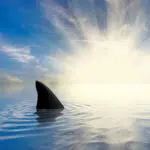International Whale Shark Day on August 30 celebrates whale sharks and their epicness. The humongous fish happens to be the largest shark species on the planet, growing as much as 60 feet from the time of its birth. The whale shark is known for its slow and gentle behavior. It usually prefers to swim in shallow depths, but it is also found in waters as deep as 3,000 feet. Due to such factors, whale sharks are extremely easy to fish. People have been using them for their meat and fins. The whale shark market has led to at least a 50% decrease in the fish’s population. This is an alarming situation and the giant has now been placed on the endangered species list. The declining numbers also mean that the general marine environment is in danger too due to the threat of large numbers of plankton, which are one of the primary food sources for whale sharks.
History of International Whale Shark Day
The International Whale Shark Day was first commemorated in 2008 at the International Whale Shark Conference in Isla Holbox. The conference hosted 40 ocean experts, activists, and scientists who had a concern for the whale shark’s declining population. While said sharks have been around for more than 240 to 260 million years, it wasn’t until the 1820s that the whale shark was first discovered off the coast of South Africa. Dr. Andrew Smith rightfully described the fish as the largest shark to exist on earth. Despite their enormous size and the fact that their smaller cousins can prove to be more hostile, the whale sharks are known to have gentle demeanors. At birth, they are no bigger than 16 to 24 inches, but as they continue to grow, reaching their peak at 25, they can be as long as 46 to 60 feet. They have 300 rows of 3,000 teeth, which are only 0.2 inches long! Weighing in at some 12 tons, whale sharks are filter-feeders, mostly consuming planktons, squids, and fish. Like their size, they also tend to have enormous appetites that can lead them to eat 44 lbs of food every day.
The beautiful giant creatures, who also have unique patterns of dots and lines on their skin, are hard to locate. They have been around since the Jurrasic and Cretaceous periods, but it is reported that before the 1980s, there were less than 350 sightings recorded. This fact comes after more than 100 years since the whale shark’s discovery by the scientific community. These sharks swim in warm waters that are not too deep. Every spring, the whale sharks migrate to the Western continental shelf of Australia. The coral in the area’s Ningaloo Reef provides the fish with an ample amount of plankton. However, in recent decades, the whale shark has been placed on the endangered list of the world’s species. They are continuously hunted for meat, fins, and just pure fun. Parts of Asia like the Philippines continue the whale shark trade. If the whale sharks are not saved, it will affect our oceans too. Too many planktons will promote algal growth that in turn will lead to negative impacts on other fish species, the environment, and humans.
International Whale Shark Day timeline
A few shark scales are found in the form of fossils from the Late Ordovician Period.
Edward Perceval Wright reports having observed and studied several whale sharks reaching a length between 46 to 75 feet.
Scott Eckert and Brent Stewart use satellite tracking to closely study the living and growth patterns of whale sharks.
Sharks, who have some 400 species and have survived five mass extinction events, are in danger of going extinct in the near future due to human activities.
International Whale Shark Day FAQs
Why do we celebrate International Whale Shark Day?
We celebrate International Whale Shark Day because it helps raise and spread awareness about endangered fish and their importance in the marine environment.
Are whale sharks endangered in 2021?
Yes, the International Union for Conservation of Nature lists whale sharks on its 2021’s endangered species list.
Is there a World Shark Day?
A Shark Awareness Day is celebrated on July 14 every year.
How To Observe International Whale Shark Day
Reduce plastic usage
One of the biggest enemies of whale sharks (or any marine creature for that matter) is plastic pollution. If a whale shark ingests plastic and it reaches its intestines, then the poor fish is as good as dead. The plastic will make it sick, not allowing it to eat anything else. So, for the sake of whale sharks, reduce or eliminate your plastic usage.
Learn about whale sharks
Sharks are interesting sea creatures, and their species, whale sharks, are quite amazing fish to learn about. Unlike their smaller cousins, whale sharks are slower, gentler, and unique in all that they do. These generally docile creatures are also known for carrying human beings on their backs and taking them for a ride.
Have a whale shark day
Buy whale shark merchandise, eat/drink whale shark-themed food, and change your social media display pictures to a whale shark. All these celebratory methods will help spread awareness about the endangered species.
5 Facts About Whale Sharks That Will Blow Your Mind
Not relatives of whales
Even though they have the word “whale” in their names, the only reason they are known as whale sharks is because of their gigantic size.
Feeding is hard
Whale sharks do not have sharp and long teeth, and this is why it is only possible for them to swallow their food (shrimps, fish, and planktons) whole.
Extremely long lives
Whale sharks can live up to 150 years provided they survive to that age as more than 90% of all whale sharks are killed before they reach the 150-year mark.
Slow swimmers
Whale sharks are slow swimmers, and the highest speed they can reach is 3.1 miles per hour.
Do not stay with their young
Unlike whales, whale sharks do not stay with their younglings after giving birth.
Why We Love International Whale Shark Day
It’s a celebration of whale sharks
Whale sharks are some of the gentlest creatures in nature out there. From their swimming and feeding habits to their beautiful patterns, whale sharks truly epitomize the phrase, “gentle giants”. This is one shark that we wouldn't mind swimming with.
It’s a celebration of a long history
Our planet has gone through several extinction events, and during these times, it has also witnessed the birth and evolution of countless beings. Whale sharks are just one such creature. We can learn a lot about the planet’s history if we take a deep dive into the evolution of whale sharks.
It’s a celebration of ecosystem
Like many other living beings on earth, whale sharks contribute their share in order to keep the globe going round. Without whale sharks, our oceans would swell with plankton populations. This would lead to algal growth that is extremely harmful to all sea creatures. Human beings will also be impacted by this in both the short and long runs.
International Whale Shark Day dates
| Year | Date | Day |
|---|---|---|
| 2025 | August 30 | Saturday |
| 2026 | August 30 | Sunday |
| 2027 | August 30 | Monday |
| 2028 | August 30 | Wednesday |
| 2029 | August 30 | Thursday |


















